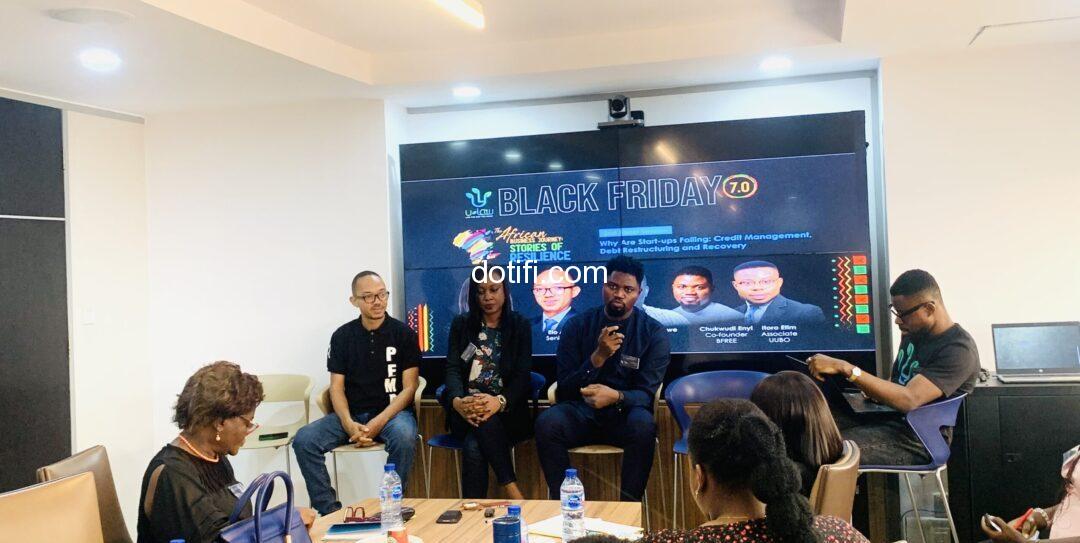The second panel session of U-Law Black Friday 7.0, moderated by Itoro Etim, Associate at UUBO, highlighted the critical aspects of credit management, debt restructuring, and recovery.
At the U-Law Black Friday 7.0, the panellists, including Tosin Dabiri, Investment Manager at Chapel Hill Denham; Elo Adhekupoli, Senior Associate at UUBO; and Chukwudi Enyi, Co-founder of BFREE, spoke broadly on insights and advice to overcome the challenges faced by startups in these domains.
With a focus on credit management, the significance of having robust processes in place before extending credit to customers was the first touchpoint. Chukwudi Enyi, Co-founder of BFREE, emphasized the importance of establishing the right processes and a professional approach, especially for startups offering non-collateralized loans. He highlighted the need for a proper credit score, customer notification systems, and a strategic team encompassing product, risk, and market expertise.
Tosin Dabiri, Investment Manager at Chapel Hill Denham, added insights from an investor’s perspective, underlining the necessity for startups, particularly fintech lenders, to have a well-rounded team, including risk professionals. She noted the need for expertise in risk assessment, offline resources for debt recovery, and the significance of maintaining profitability and liquidity.
The conversation seamlessly transitioned into debt restructuring, with a spotlight on the indicators that signal the need for such measures. The panellists emphasized that companies should proactively approach restructuring when facing challenges in meeting financial obligations, sustaining profitability, and adhering to conditions and covenants set by lenders. Negative equity, a decline in market share, and breaching agreed-upon conditions were identified as key indicators.
Elo Adhekupoli, Senior Associate at UUBO, elaborated on the negotiation aspects of debt restructuring. He highlighted the need for startups, especially in the fintech lending space, to have experienced risk professionals. Elo emphasized the importance of technology, such as KYC (Know Your Customer) processes, and cautioned against heavy reliance on debt without considering equity options for capitalization.
Chukwudi Enyi delved into the specifics of debt recovery strategies employed by BFREE. He outlined a unique and ethical approach that focuses on understanding customers’ perspectives and vulnerabilities. By using psychological triggers and empathetic communication, the startup aims to create a sustainable relationship with customers who have defaulted on loans. Chukwudi stressed the significance of qualifying customers based on their ability and willingness to pay, using this information to tailor payment plans that align with customers’ financial capacities.
The discussion concluded with advice on striking a balance between extending credit to customers and ensuring the financial stability of startups. Tosin Dabiri cautioned against using equity for lending purposes, urging startups to preserve equity for essential business functions. She stressed the need for startups to focus on reducing costs, exploring new revenue streams, and seeking debt as a viable option for sustaining lending operations.
In essence, the panellists at U-Law Black Friday 7.0 highlighted the complicated relationship between credit management, debt restructuring, and recovery, offering valuable insights for startups having difficulties with these challenges in business.
The post U-Law Black Friday 7.0 Highlights Credit Management, Debt Restructuring, Recovery as Startups’ Challenges can be searched on searchng.ng & dotifi.comTech | Business | Economy.


